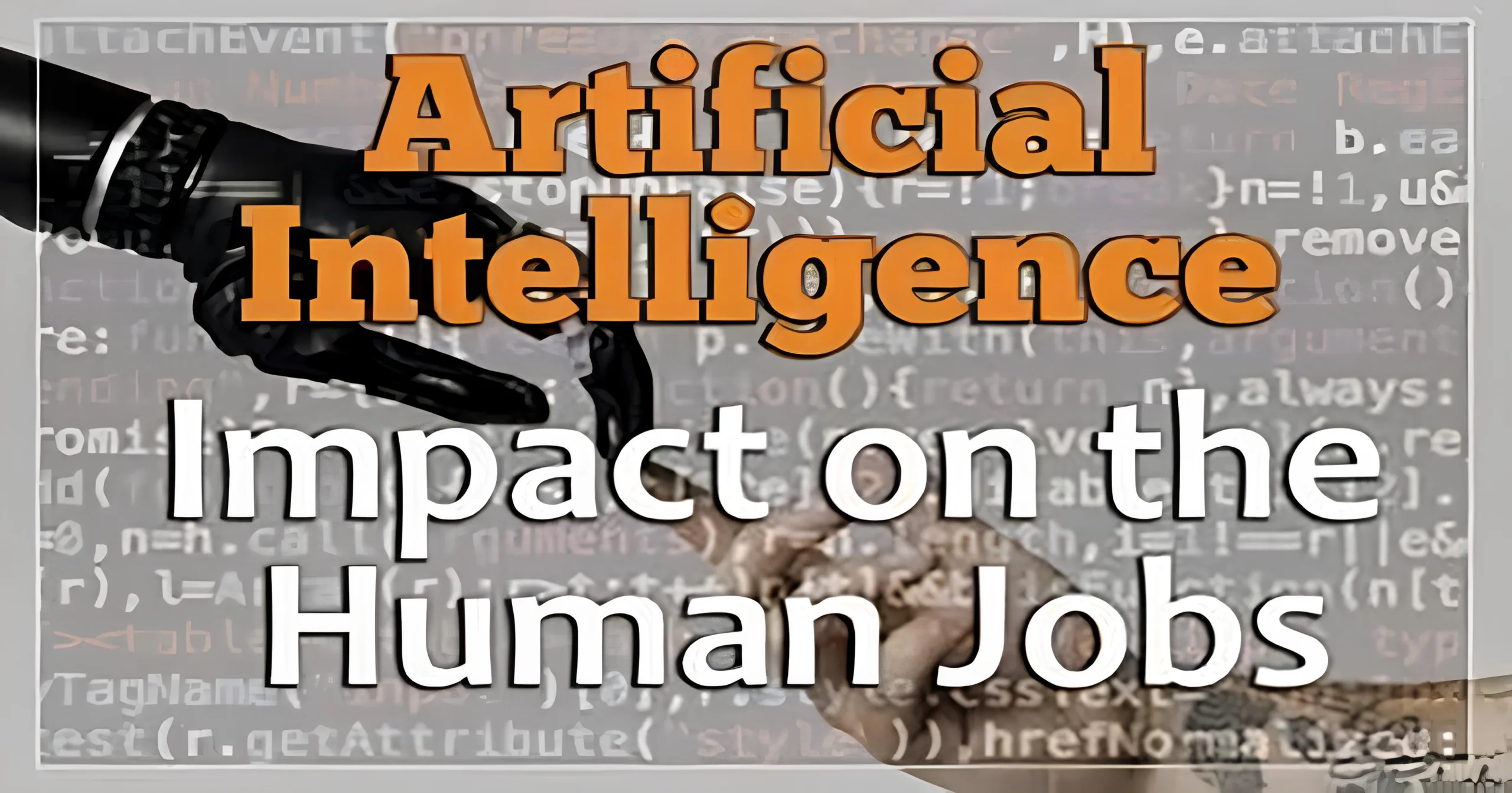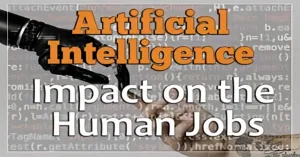![]()
Seizing the Future of AI and ML Jobs: A Roadmap to Success
Introduction of Artificial intelligence
Welcome to the future of employment—the realm of Intelligent systems and machine learning jobs. In this guide, we’ll explore the exciting opportunities, skills, and challenges associated with these cutting-edge professions. Whether you’re a seasoned professional or a curious newcomer, moreover, this article will provide valuable insights to help you thrive in the world of AI and machine learning.
The Landscape of AI Jobs
The Growing In a tech-driven era, the demand for AI and machine learning experts is soaring. Companies across industries seek professionals proficient in developing, implementing, and optimizing AI solutions. Emerging Roles in AI Explore diverse job roles, such as machine learning engineer, data scientist, and AI researcher. Each role brings unique responsibilities, making it essential to align your skills and interests with the right position.
Remote Opportunities
One of the perks of Artificial intelligence jobs is the increasing prevalence of remote work. Discover how you can leverage this flexibility to enhance your work-life balance.
Building Your AI Career
Essential Skills
Mastering programming languages like Python and R is crucial, but soft skills like problem-solving and critical thinking are equally valuable. Find the right balance to stand out in the competitive AI job market.
Certifications and Degrees
Navigate the educational landscape with insights on relevant certifications and degrees. From online courses to advanced degrees, explore options that suit your career goals.
Is the bad impact of AI on humans a cause for concern?
Machine intelligence (AI) has undeniably transformed various aspects of our lives, bringing forth unprecedented advancements. However, it’s crucial to address the potential negative impacts that AI might have on humanity. Let’s delve into some areas where concerns arise.
The Threat to Employment
Artificial intelligence efficiency in automating tasks raises questions about job displacement. Routine tasks that were once handled by humans are now being performed by AI systems, leading to concerns about unemployment and the need for new skill sets.
Bias and Discrimination
AI systems are only as unbiased as the data they are trained on. If the training data contains biases, the AI system can inadvertently perpetuate and even amplify these biases, leading to discriminatory outcomes. This has significant implications, especially in areas like hiring, lending, and law enforcement.
Lack of Accountability
As AI systems become more complex, understanding their decision-making processes becomes challenging. This lack of transparency raises concerns about accountability. In critical areas like healthcare and finance, the inability to trace and understand AI-driven decisions poses risks.
Invasion of Privacy
AI applications often rely on vast amounts of personal data. The collection and utilization of this data for profiling, surveillance, or other purposes can infringe on individuals’ privacy rights. Striking a balance between innovation and privacy protection is a growing challenge.
Ethical Dilemmas
The use of AI in areas like autonomous weapons and healthcare decision-making raises ethical questions. Determining the ethical guidelines for AI applications becomes crucial to prevent unintended consequences and ensure responsible development.
Social Isolation
The increasing integration of AI-driven technologies in daily life may lead to social isolation. Dependency on AI for social interactions or relying on AI companions may reduce human-to-human connections, impacting mental well-being.
AI and ML Jobs: A Roadmap to Success
Embracing Continuous Learning: The Engine of Innovation
In the ever-evolving field of AI and ML, staying updated is non-negotiable. Continuous learning ensures that you are equipped with the latest tools and techniques, positioning you as a valuable asset to prospective employers. Online courses, workshops, and certifications are excellent avenues to broaden your skill set and stay ahead of the curve.
Tailoring Your Resume: Crafting a Story of Expertise
Your resume is your first impression on potential employers. Tailor it to showcase your specific achievements and experiences related to AI and ML. Use bold and concise language to highlight key skills and projects. Quantify your impact where possible, emphasizing the tangible results of your contributions.
Job Search Strategies: Navigating the AI Job Market
In the competitive landscape of AI and ML jobs, a strategic approach to job searching is crucial. Leverage specialized job boards, company websites, and professional networks to explore opportunities. Boldly apply to positions that align with your skills and aspirations, consider reaching out directly to hiring managers or recruiters.
The Importance of Soft Skills: Beyond Technical Proficiency
While technical expertise is paramount, don’t underestimate the value of soft skills. Effective communication, problem-solving, and collaboration are highly sought after in the workplace. Showcase your ability to work in interdisciplinary teams and communicate complex technical concepts in a way that is accessible to non-technical stakeholders.
Niche Specializations: Carving Your Unique Path
As the AI and ML fields mature, niche specializations are emerging. Whether it’s AI in healthcare, finance, or environmental science, identifying and cultivating expertise in a niche area can make you a standout candidate. Consider pursuing projects or certifications that align with your specific interests within the broader field.
Future Trends: Anticipating Industry Shifts
Anticipating future trends is a skill in itself. Stay informed about the latest developments in AI and ML by following industry publications, attending webinars, and participating in relevant online communities. Being aware of emerging technologies and methodologies positions you as a forward-thinker in the eyes of employers.
Balancing Passion and Pragmatism: A Career that Fits
In the pursuit of an AI or ML career, it’s essential to strike a balance between passion and pragmatism. Seek opportunities that align with your interests, but also consider the practical aspects of the job, such as work-life balance, company culture, and growth potential. A fulfilling career is not just about technology; it’s about finding a workplace where you can thrive.
Crafting Your Elevator Pitch: Making a Lasting Impression
In networking and job interviews, your ability to succinctly communicate your value is crucial. Craft an elevator pitch that encapsulates your skills, experiences, and aspirations in a compelling narrative. Make use of bold statements to underscore key points, leaving a lasting impression on those you encounter.
The Global Impact of AI and ML Jobs: Shaping the Future
Beyond individual career growth, recognize the global impact of AI and ML jobs. By contributing to advancements in technology, you are part of a collective effort shaping the future. Whether it’s addressing societal challenges or driving economic innovation, the work of AI and ML professionals has far-reaching implications.
Conclusion
Is a background in computer science necessary for AI jobs?
No, but it greatly helps. Many successful AI professionals have diverse backgrounds, but a foundation in computer science provides a solid advantage.
What industries are embracing AI and machine learning?
AI is making waves in healthcare, finance, marketing, and more. Virtually every industry can benefit from incorporating AI solutions.
How can I stay updated on
- Machine intelligence
advancements?
Are Machine intelligence jobs at risk of automation?
While some routine tasks may be automated, the demand for skilled AI professionals continues to rise. Adaptability and continuous learning are key.
What is the average salary for Machine intelligence professionals?
Salaries vary based on experience and location, but AI professionals typically enjoy competitive compensation, reflecting the high demand for their skills.
How can I make my AI job application stand out?
Highlight your practical experience, showcase relevant projects, and demonstrate a passion for ongoing learning. Tailor your application to each specific role.


























Add Comment